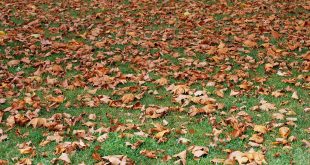Depression often leads to a crippling sense of isolation. And yet, the affliction itself impacts so many people. The Office for National Statistics (ONS) reports that nearly a fifth of adults in the UK have experienced some form of depression or anxiety. Depression has roots in many areas, but the most common trigger tends to be a major life event. Things like family bereavement or a relationship falling apart can lead to depressive episodes, as well as certain genetic dispositions.
Medication and therapy often work hand-in-hand to help people cope with depression. But they cannot work on their own — as such, sufferers of depression are advised to take up hobbies that will, at the very least, give them something else to focus on and avoid overthinking. A particularly successful hobby to pick is gardening. According to reports, 87% of people who spend time gardening for more than six hours a week feel happier.
Gardening as a family activity
A sense of achievement can be hugely beneficial for someone suffering depression. Achievement and self-care don’t need to be life-changing either — sometimes, it takes gargantuan effort to simply get out of bed and face the world when the black dog is pawing at the door. By giving yourself a sense of responsibility for something such as plants and trees that will rely on you to tend to them, you’re much more likely to motivate yourself into some sort of routine.
Idle hands
Gardening is a fantastic way to keep your hands busy without being too taxing. Whether you spend a few hours digging or mowing, you’ll be occupied away from overthinking. Plus, the act of simply being outside can boost your mood.
Speaking to the Huffington Post, psychotherapist Dr Sheri Jacobson said, “While I haven’t come across anyone claiming that gardening has single-handedly overcome their depression, as part of a wide set of tools, gardening can be beneficial in the battle against depression.
“Being in the outdoors in more natural surroundings can help lift our mood as it brings a sense of simplicity and tranquillity which is therapeutic for many people.”
Grow your own way
After a few weeks or months, you’ll be able to see the results of your efforts and harvest these crops. The act of harvesting, whether it’s from own-grown carrots or an exotic lime tree, is an achievement. This leads to dopamine, the chemical responsible for a blissful feeling, being released in the brain. Plus, tending to these crops counts as light exercise. Exercise, as we all know, is vital to boost endorphin levels.
Scents and memories
There’s a case to be made for flowers and scented herbs too. According to one study feelings of stress or depression can be altered by simply inhaling various aromas. Hence, aromatherapy!
A good choice for your gardening could be jasmine. Its fragrance is said to aid in restful sleep. Meanwhile, rosemary is a useful herb for aspiring cooks, as well as being claimed to improve memory and keep anxiety at bay.
Garden doesn’t have to be a chore — it can be a vital element of routine. Whether it’s a hobby or a deep-seated interest, it can bring many benefits to your life. Of course, it isn’t a cure-all: if you are struggling, seeking professional help is a crucial first step to recovery.
Sources
https://www.theguardian.com/society/2013/jun/19/anxiety-depression-office-national-statistics
https://www.rachel-kelly.net/gardening-helps-depression/
https://www.rebootwithjoe.com/fruit-and-vegetables-may-help-fight-depression/
https://www.sciencedaily.com/releases/2009/07/090722110901.htm
https://www.serenataflowers.com/pollennation/plants-anti-anxiety-benefits/
https://www.huffingtonpost.co.uk/2013/07/16/gardening-helps-depression-_n_3602877.html
 Gardeners Club The Gardeners Club is a free to join online club for everyone with an interest in gardening and gardens.
Gardeners Club The Gardeners Club is a free to join online club for everyone with an interest in gardening and gardens.






